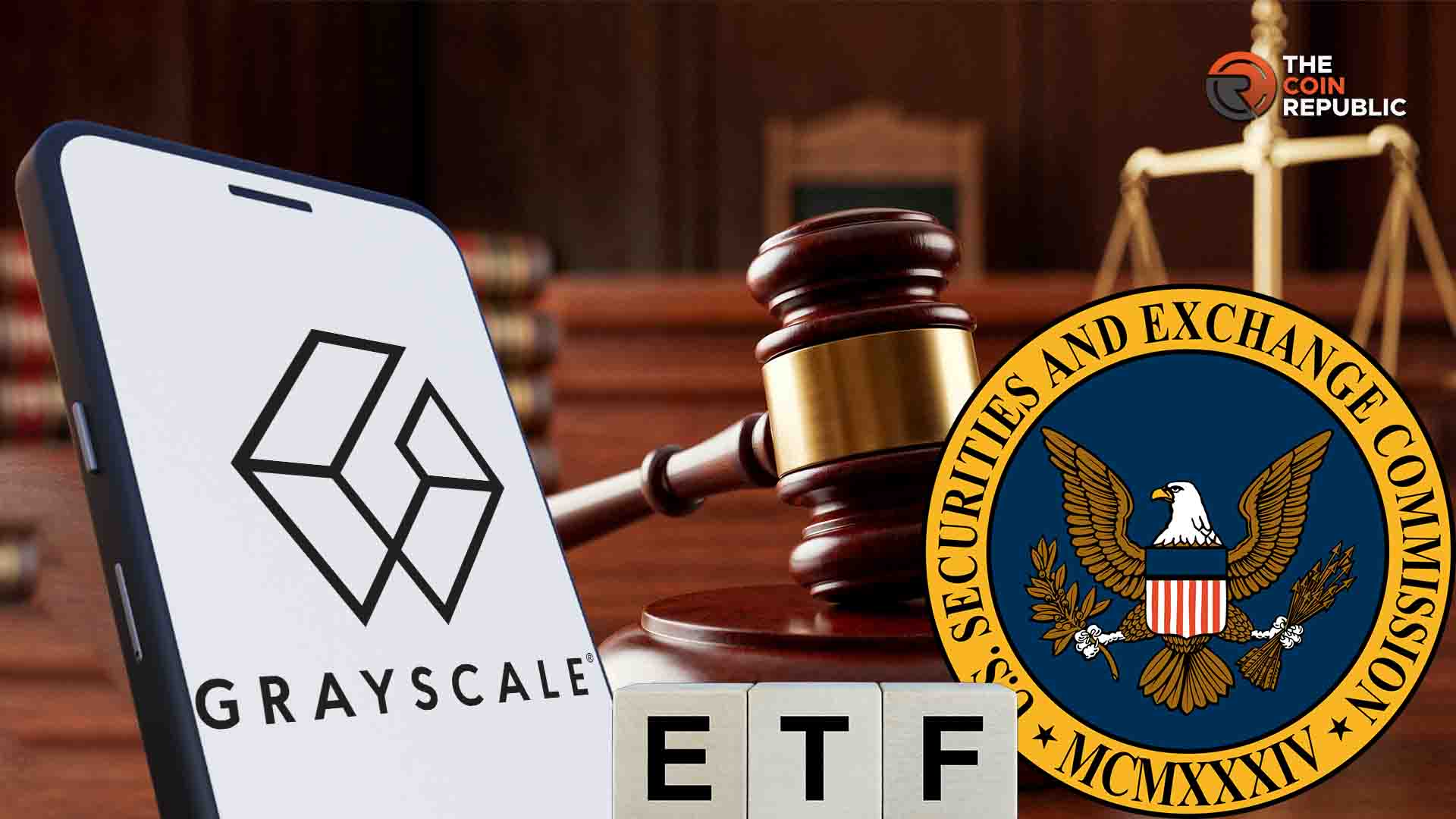SEC Puts Grayscale Altcoin ETF on Hold Amid Legal Uncertainties

Grayscale’s altcoin ETF Faces Unexpected Regulatory Delay from SEC
The U.S. Securities and Exchange Commission (SEC) recently approved Grayscale’s long-awaited altcoin exchange-traded fund (ETF), only to reverse course shortly after.
The ETF, known as the Grayscale Digital Large Cap Fund (GLDC), was initially authorized for trading under NYSE Arca Rule 8.500.
SEC’s Sudden Stay Order
A letter dated July 1, signed by SEC official J. Matthew DeLesDernier, imposed an immediate stay under Rule 431(e). This action effectively halts the previously granted approval until the full Commission conducts a review. The abrupt nature of this decision has left analysts and investors seeking further clarification.
Inside the Grayscale altcoin ETF
The GLDC ETF aims to provide investors with exposure to leading altcoins, including Ethereum (ETH), XRP, Solana (SOL), Avalanche (AVAX), and Cardano (ADA). These cryptocurrencies represent a significant portion of the non-Bitcoin market. Previously, access to these assets was limited to qualified clients through private placements.
Grayscale intended for GLDC to be among the first publicly traded altcoin ETFs in the U.S., simplifying digital asset investments for institutional players.
Reasons Behind the SEC’s Pause
The rationale for the SEC’s sudden pause remains unclear, but analysts from Bloomberg suggest it is not a rejection but rather a delay. James Seyffart, an ETF analyst, proposed two possible explanations. First, the SEC may be waiting for Congress to finalize regulations regarding digital asset classifications. Given the ambiguous legal status of altcoins between the SEC and the Commodity Futures Trading Commission (CFTC), proceeding with the ETF could pose risks.
Seyffart also speculated that internal coordination issues might be at play. The approval originated from the SEC’s Division of Trading & Markets, but other divisions, such as Corporation Finance or Enforcement, may not yet be on board, leading to the unexpected inter-agency pause.
Analysts’ Perspectives on the Situation
Eric Balchunas, another Bloomberg analyst, suggested that the SEC’s decision to issue a stay rather than a rejection could be a strategy to avoid backlash. This approach allows the Commission to buy time to establish a more cohesive regulatory framework for digital assets.
Balchunas also noted that specific concerns regarding how Grayscale plans to manage and price the altcoins within the ETF might be under scrutiny. While there are no formal allegations, he emphasized that the SEC’s message is clear: “Not yet.”
Current Legal Landscape for Altcoins
The core issue lies in the regulatory uncertainty surrounding most altcoins, including those included in the ETF. The SEC maintains that some of these assets may be classified as unregistered securities. However, without comprehensive legislation like the Genius Act from Congress, this classification remains unresolved.
Until there is clarity on regulatory authority—whether it lies with the SEC or the CFTC—launching Grayscale’s altcoin ETF could expose the firm to legal challenges, particularly if it is approved prematurely. This uncertainty likely prompted the SEC to invoke Rule 431(e), allowing for additional legal review.
Future Prospects for Grayscale and Other ETF Applicants
Since the stay was issued, Grayscale has not made any public statements. However, internal sources indicate that the firm is still preparing for a launch once the approval process resumes.
Other companies looking to enter the ETF market are closely monitoring the situation. While the SEC has not completely ruled out altcoin ETFs, this incident illustrates the complexities involved in obtaining approval, even after initial endorsements.
The future of the Grayscale altcoin ETF remains uncertain, caught in a web of regulatory delays. The timeline for resolution may depend on how quickly lawmakers and regulators can establish clear guidelines for digital assets in ETFs. All eyes are now on the SEC’s next steps.







